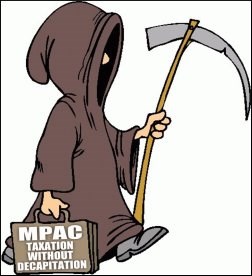Heavy industries in Northern Ontario are paying less taxes these days and municipalities like the City of Sault Stre. Marie are going to have to deal with it.
That from Carl Isenburg, president and chief administrative officer of Municipal Public Assessment Corporation (MPAC).
Tenaris Algoma Tubes was recently awarded a court-ordered reduction in its assessment and St. Marys Paper Corp. has applied for one for the 2008 tax year.
Isenburg says this is a very harsh economic climate and competition is extremely fierce for many Northern Ontario industries.
"As a result, buildings have been demolished or removed, machines shut down and staff laid off. This contraction is required if they are to remain in operations."
Mergers, realignments and globalization have changed the way northern industry towns do business, Isenburg added.
"Historically, there was more willingness to pay municipal taxes," Isenburg told City Council last night. "But as they globalize, there is less willingness and it becomes a bottom-line issue."
Isenburg said many global corporations are less concerned with the everyday lives and welfare of the people who live in the communities their steel plants and paper mills are located in.
They're a whole lot more concerned with turning a profit.
Manufacturers been looking for ways to increase their profit margins, and one of those is to challenge tax assessments in court.
And the courts have been reducing those amounts.
"The assessment process is problematic for us because we don't have access to the most up-to-date information," Isenburg said. "We want to work with all three levels of government to try to gain access to the information we need, and we may need to see some rules changes so we can better this information."
MPAC's role is to consider the value of the property an industry occupies, together with the value of the industry's activity.
It then takes into account things like depreciation of structures, obsolescence of equipment, assembly, material and time costs, as well as geographical and other factors, to assess the value of the industry and decide how much that industry should be paying in municipal taxes.
But without current information to work from, MPAC is having a hard time making accurate assessments from which municipalities can plan their budgets, Isenburg said.
"We're in a consultation process ... to try to have more access to up-to-date information so we can do a better job," he said. "We want to work with any partner to try and clean things up."
One thing Isenburg was certain of was that generally, the industrial tax base in Northern Ontario is diminishing, although there are a few exceptions.
"Municipalities will be left with the challenge of trying to make up for lost tax revenue," he said. "One possible solution may be to increase the levy on homeowners."
As for industry, Isenburg said the province has stated its goal is to maintain its steel and paper industry strength and sustainability in the world market.
